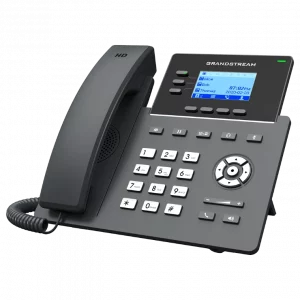
SIP Technology in Telecom: The Basics
Not long ago, businesses had to invest in pricey phone systems. Large firms needed private branch exchanges and smaller ones had to make long-term contractual commitments with telecom companies. But thanks to the advancement of SIP technology in telecom, companies can now access telecommunications at much lower costs, with extra business-oriented services.
SIP stands for Session Initiation Protocol, a signaling protocol used for real-time communication between Internet Protocol (IP) devices. SIP technology facilitates multimedia IP-based communications, like voice calls, video chats and instant messaging. It is also a critical component of wireless LTE mobile communication.
SIP initiates, maintains, modifies and terminates real-time communications sessions. It also facilitates features such as message-waiting notifications and automatic call-backs.
SIP technology makes online communication simple, accessible, and affordable. But there’s quite a lot going on behind how this protocol works.
How does SIP Technology in Telecom Work?
SIP is a text-based protocol. This means that all its protocol messages or instructions are written and readable. It has a client-server architecture that works with responses and requests. Devices can communicate with each other via a SIP proxy server that receives client requests and server responses.
Client requests set off different protocol functions, like beginning or ending a call. Server responses show the response to the request, such as indicating a valid request or having completed the request successfully.
SIP can work along with traditional phone lines through a process called trunking. This is where SIP services connect to legacy private branch exchange systems.
SIP technology in telecom can facilitate online videoconferencing, digital media sharing, and audio calls, even though it is a relatively straightforward protocol. This is why it’s a core driver of Internet-based communications.
Related: SIP Technology Advantages
Five Benefits of SIP Technology in Telecom
SIP technology in telecom is great for companies of all sizes. Its text-based protocols are also easier to implement for developers than other protocols. And it’s flexible enough to work with other messaging protocols, like SDP (used to provide descriptions of multimedia sessions) and VoIP.
For your business, this translates into online communication that’s cost-effective, easily implemented, reliable, and feature-rich.
1. Ready for Unified Communications
Since SIP can work with other protocols, it’s your gateway to unified communications. This is where your phone system consolidates other communication services like video, instant messaging, SMS, cloud-based collaboration, team chats and file sharing, making it easier to manage and reduce your overall costs.
2. Cost-Effective
SIP services cost far less than traditional phone lines. You don’t need to invest in costly telecom systems, making a considerable initial payment and locking into a pricey long-term contract. With SIP technology in telecom, there is no additional infrastructure such as phone lines to run or hardware to purchase.
Overall, Internet-based telecommunications are less expensive to run and maintain.
3. Fast Scalable Setup
A reputable company can easily set up a SIP service. In fact, experienced providers can have services ready within mere seconds. You won’t need to wait for a technician to come on-site, do multiple evaluations, and make hardware changes or line installations.
This also makes SIP quite scalable. Your service can grow or shrink along with your needs without a problem.
4. Location Independent with a Global Reach
Using SIP means your business is never tethered to one building or area because Internet-based SIP services are inherently portable and globally optimized. You can extend your SIP system to any location you want, move it with ease, and acquire regional numbers.
If you want to move buildings, you can do it with less disruption and retain your numbers. You can also run a dispersed or remote workforce on a SIP phone system.
You can extend your phone lines to offices in another region or obtain regional numbers to give the appearance of a larger or more local business.
5. Business Resiliency
SIP technology in telecom is available with multiple layers of service protection and failsafe redundancies. A reliable provider will use multiple gateways spread over a broad geographic region. This lowers the chance of service going out.
If your office loses Internet access, a SIP phone service can forward calls to your employees’ mobile phones.
Related: SIP: Benefits for Business Communications
What to Look for in a SIP Solution
SIP solutions are relatively simple to implement and affordable, but you still need to choose your provider wisely. You don’t want to end up with a fly-by-night operator with inferior channel quality and poor customer service.
SIP technology in telecom has been around since the 1990s. You can find a trusted provider with a history of excellent service if you do track-record research. Look for a partner with in-depth technical knowledge.
You should be able to get core SIP offerings and new services like compatibility with IP-PBX, SIP softphones, analog telephone adapters, and T1 digital gateways. You also want a provider with flexible plans, transparency, and great reviews.
Here’s a checklist of things to look for:
· Easy management with a user-friendly control panel and service automation
· Premium telecom quality using Tier-1 upstream providers
· Available local, toll-free, and international numbers
· Ability to connect with legacy analog PBX or key systems
· Compatibility with telephony applications
· A history of good service
· Included E-911 and 411 directory services
· Business continuity with multiple gateways
· Clear upfront pricing with the ability to upgrade, downgrade or cancel service at any time
A SIP system opens the door to more than basic telecommunications. You’ll have a streamlined, unified communications system with global reach and local targeting.
Having the right SIP provider on your side will ensure that you get reliable service with all the latest value-added business features.
SIP.US is a leading provider of business-class SIP solutions. We’ve pioneered industry standards and continue to offer cutting-edge SIP services at affordable pricing. You can try out our services now with a free trial account that includes complimentary call time. Get started today.


